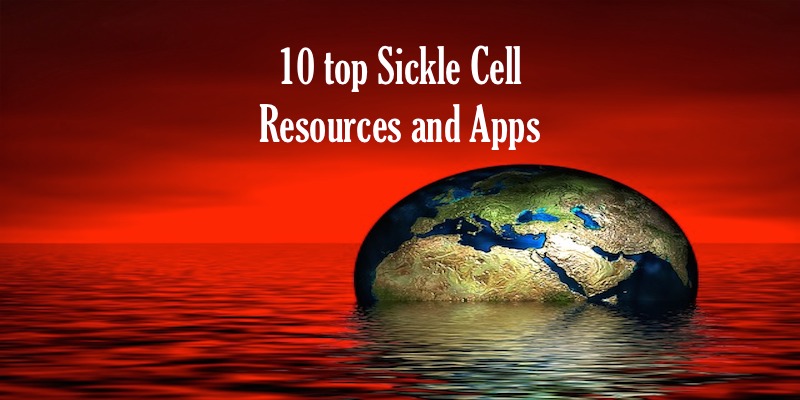One of the best ways, to manage sickle cell disease (SCD) is to be informed. Learn as much as you can and then along with your doctor begin to create a management plan that works for your lifestyle. Five of my favorite websites to learn more about SCD are mentioned below:
CDC.gov
When I am searching for information about sickle cell, I look at cdc.gov first. CDC.gov (www.cdc.gov) is the official Web site of the Centers for Disease Control and Prevention (CDC). It’s committed to achieving true improvements in people’s health. CDC applies research and findings to improve people’s daily lives and responds to health emergencies—something that distinguishes CDC from its peer agencies. Working with states and other partners, CDC provides a system of health surveillance to monitor and prevent disease outbreaks (including bioterrorism), implement disease prevention strategies, and maintain national health statistics. CDC also guards against international disease transmission, with personnel stationed in more than 25 foreign countries. (Source)
Genome.gov
In 1997 the United States Department of Health and Human Services renamed NCHGR the National Human Genome Research Institute (NHGRI), officially elevating it to the status of research institute – one of 27 institutes and centers that make up the NIH.
With the human genome sequence complete since April 2003, scientists around the world have access to a database that greatly facilitates and accelerates the pace of biomedical research. The history of the HGP, the history of genomics, and the history of NHGRI, are inextricably intertwined. (Source)
Kidshealth.org
KidsHealth is the most-visited site on the Web for information about health, behavior, and development from before birth through the teen years. . . KidsHealth is more than just the facts about health. As part of The Nemours Foundation’s Center for Children’s Health Media, KidsHealth also provides families with perspective, advice, and comfort about a wide range of physical, emotional, and behavioral issues that affect children and teens.(Source)
Sicklecelldisease.org
http://www.sicklecelldisease.org/ (Source)
Through the years the Association has provided effective leadership in positioning sickle cell disease and its related problems as a major public health care concern and, indeed a universal problem. SCDAA’s mission is to advocate for and enhance our membership’s ability to improve the quality of health, life and services for individuals, families and communities affected by sickle cell disease and related conditions, while promoting the search for a cure for all people in the world with sickle cell disease. (Source)
Nih.gov
NIH’s mission is to seek fundamental knowledge about the nature and behavior of living systems and the application of that knowledge to enhance health, lengthen life, and reduce the burdens of illness and disability.
The goals of the agency are:
– to foster fundamental creative discoveries, innovative research strategies, and their applications as a basis for ultimately protecting and improving health;
– to develop, maintain, and renew scientific human and physical resources that will ensure the Nation’s capability to prevent disease;
– to expand the knowledge base in medical and associated sciences in order to enhance the Nation’s economic well-being and ensure a continued high return on the public investment in research; and
– to exemplify and promote the highest level of scientific integrity, public accountability, and social responsibility in the conduct of science. (Source)
Related Apps
Beyond Sickle Cell (Android, iTunes). Beyond Sickle Cell is a monthly Digital publication offering lifestyle and health related articles and an opportunity for people living with, working with, or interested in, Sickle Cell anemia to share best practice, events, campaigns and developments globally. (Source)
Fooducate (Android, iTunes). Are you confused by ingredient lists, nutrition labels, health claims and marketing hype?
Fooducate is here to help. We are a team of parents, dietitians, and techies. We realize that at the supermarket you have very little time to analyze food labels and extract the information that is important to you. We’d like to help you make better choices for you and your family. (Source)
If this information was helpful, please share the post:
10 great resources to learn more about sickle cell disease. http://t.co/mfViGCV8NF #30forSickleCell #RareDisease pic.twitter.com/TZbJjsjWVn
— CleverMom (@Cleverlychangin) September 11, 2014
Photo credit: Pixabay.com
Video credit: academiadeciencia. Youtube.com. Sickle Cell Disease. Written by Paulo César Naoum and Alia F. M. Naoum. Retrieved September 10, 2011 from http://youtu.be/R4-c3hUhhyc.


